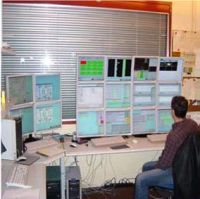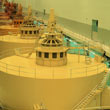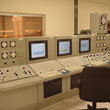Your productivity is aimed to be enhanced thanks to our expertise in industrial automation
Successful projects don't just happen, they are made to happen. When it comes to managinga an Automation project, few companies can match IRAS, in terms of its experience, standards, and commitment to on-schedule, on-budget performance. As a matter of fact, IRAS has the resources and expertise to satisfy your instrumentation, automation, process control, process information and system integration needs. However our core business is EPC in fields of DCS, FCS, ESD and PLC but our services can cover all or any of the following activities:
|
 |
IRAS focuses on a variety of projects, which are primarily control systems & instrumentation in nature. This includes all aspects of electrical power engineering, process control and automation, instrumentation and SCADA system integration. We service specially and professionally in Oil & Gas. But as a minor we would service other fields of industry.
Our scope of services extends from system studies, the initial project conceptual design and budget preparation stage, through to the phases of specification development, equipment selection, detailed design, and installation. It continues to include training, commissioning, start up and post start up support. These services may be provided as a turnkey supply, engineering only, or combinations of fixed price or  time and expenses.
time and expenses.
We pride ourselves on our repeat customer base. Of prime importance to our clients is the IRAS Automation co. commitment to offer long-term support, and to provide our clients with the necessary tools and documentation to be self sufficient at the completion of the project.
IRAS is neither vendor owned, or influenced in their decisions by any commercial links to vendors, fabricators or construction contractors. IRAS contracts out all construction and fabrication service components of our scope of supply. Our focus is always on you as a client.
Documentation Aspects
If we just think we know what everyone else is doing then there is a likelihood somebody has a misconception. Documentation is vital. IRAS strongly believes in a systematic methodology to project execution, and documentation is the cornerstone to that methodology. Project kick-off meetings define project procedures, but what defines how the project process works?
Project execution documents such as Functional Requirement Documents (FRDs) or Design Basis Memorandums (DBMs) help define the details within the project. The FRD or DBM helps define the multiplicity of project elements that need consideration during the detailed design phases. Often this helps determine which industry standards, environmental laws, or safety Codes need adherence. Descriptions of the process functionality and dependencies are defined and may dictate redundant supplies of power, or  duplicate process equipment. Influences on Vendor selection, issues regarding risk, and impact of technology upon the project will be detailed. The order in which equipment is started or shut down is often defined. Often these issues lead to a direct impact on written specifications for the project.
duplicate process equipment. Influences on Vendor selection, issues regarding risk, and impact of technology upon the project will be detailed. The order in which equipment is started or shut down is often defined. Often these issues lead to a direct impact on written specifications for the project.
Issues such as the capital cost of a project are frequently high profile items however project life cycle costs take a higher priority when reviewed and documented in the FRD. The FRD or DBM provides a detailed road map for engineering design and is a tool applicable to everything from electrical design through to control software program requirements.
